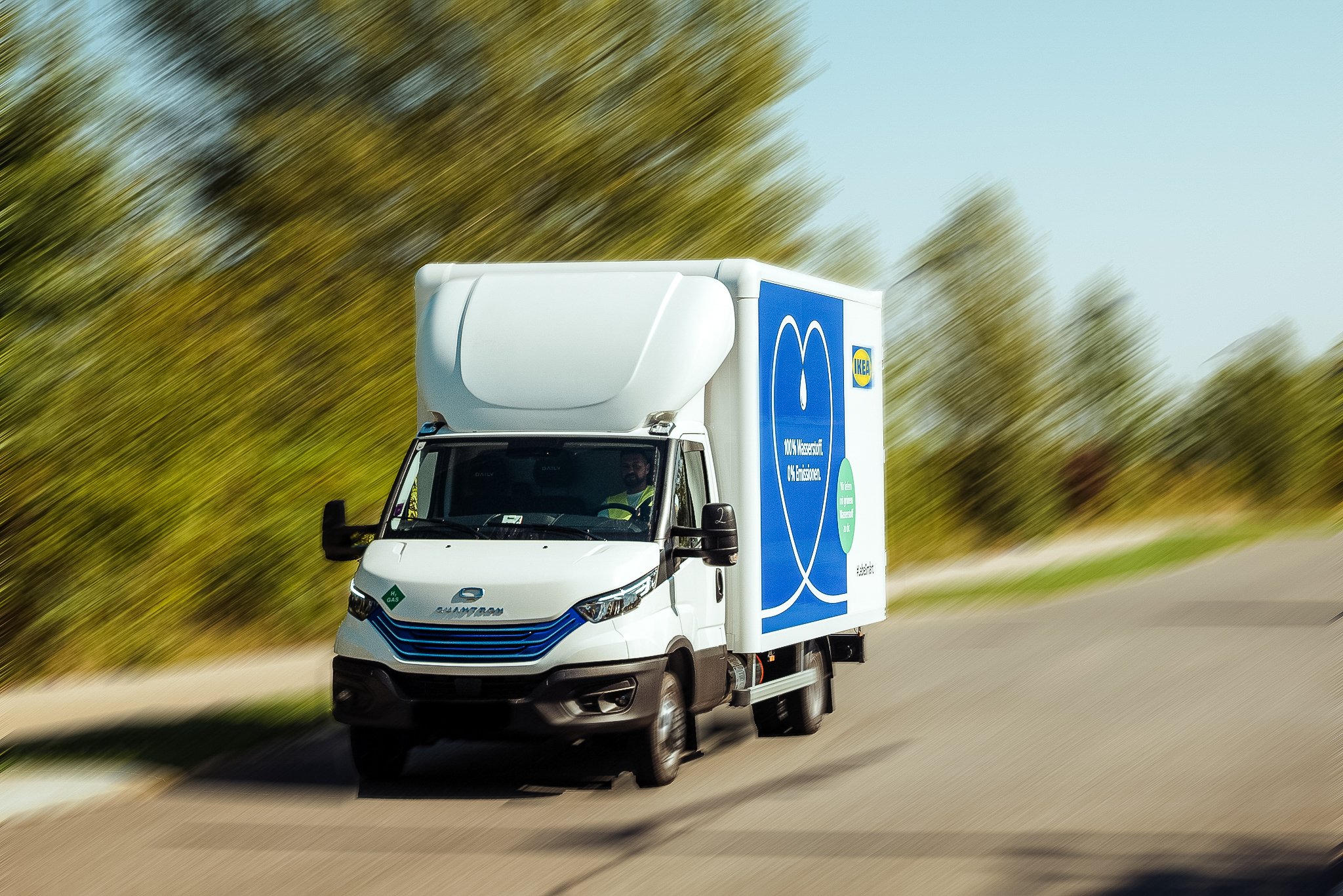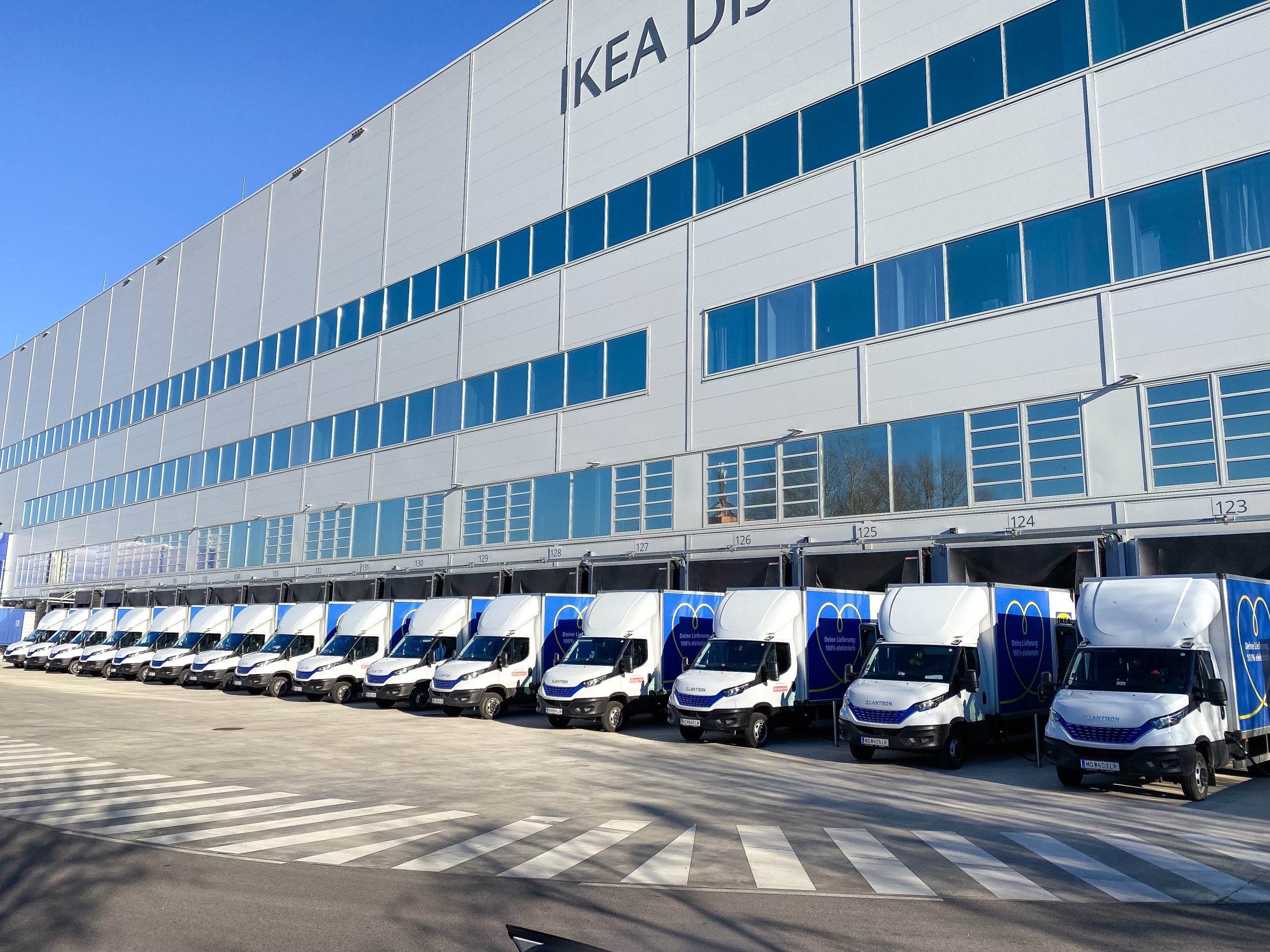
Powered by Ballard's FCmove®-MD module, QUANTRON has delivered five hydrogen fuel cell delivery vans to IKEA Austria. The Quantron QLI FCEV vans are expected to reduce IKEA's carbon footprint by 160 tons of CO2 per year.
Setting an example for sustainable logistics, IKEA Austria is the first IKEA market worldwide to introduce hydrogen-powered delivery vans. QUANTRON AG, a specialist in sustainable passenger and freight transport, is supplying the QUANTRON QLI FCEV light weight trucks.
The fleet of five FCEVs will be powered by Ballard’s FCmove®-MD 45kW fuel cell module. The zero-emission vehicles will be fueled with green hydrogen from energy supplier Wien Energie.
.png?width=894&height=330&name=AD_IKEA%20(1).png)
Developed in partnership with Ballard, the QLI FCEV represents the first hydrogen-powered van in the light commercial vehicle segment up to 7.5t in Europe, and is a range leader in the class. The entire process from feasibility study to delivery took only 18 months, enabling the QLI FCEV to be available on-road in record time.
QUANTRON's innovative technology offers a user-friendly complete package with innovative e-axle, customized high-performance battery, fuel cell and tank system integration, and unique energy management and aerodynamics for maximum efficiency. One tank of fuel is sufficient for a range of up to 400km, allowing distances of more than 500km per day.

“We are delighted that our long-standing collaboration with IKEA has reached another level with the launch of a new generation of innovative QUANTRON products. We have been supporting IKEA Austria in its mission of decarbonization since August 2021. IKEA Austria already has 45 QLI BEV trucks in use in the greater Vienna area and a further eleven in other Austrian cities,” explains Andreas Haller, CEO, Chairman of the Board and Founder Quantron AG.
QUANTRON's zero-emission vehicles save IKEA around 450 tons of CO2 annually. The FCEV trucks have a longer range for deliveries even outside urban areas and are expected to reduce CO2 emissions by another 160 tons per year. By 2025, IKEA Austria plans to make 100% of its last-mile deliveries emission-free.